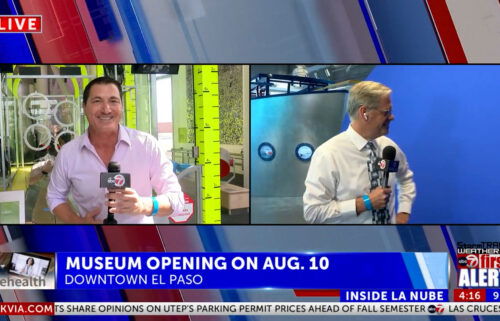Supreme Court ruling grants man certificate of innocence
Click here for updates on this story
SPRINGFIELD, Illinois (Tulsa World) — A majority of the Illinois Supreme Court decided Thursday that the state law governing certificates of innocence only requires exonerated individuals to prove their innocence for the criminal offense with which they were initially charged.
The court’s decision means that an exonerated person who seeks a certificate of innocence does not have to prove their innocence in “every conceivable theory of criminal liability for that offense.”
The effect of their decision has the most immediate impact for Charles Palmer, who was wrongfully convicted of a Decatur murder and spent nearly two decades in prison. Palmer’s petition for a certificate of innocence was under review in the court’s opinion.
Palmer was charged in the August 1998 death of William Helmbacher in Decatur. Helmbacher reported a burglary at his apartment on Aug. 26, 1998, and he was found dead in his apartment one day later.
Ray Taylor, Palmer’s cousin who lived in the apartment above Helmbacher, was charged with the burglary of Helmbacher’s apartment. Taylor later told police that Palmer confessed to Helmbacher’s murder. The autopsy showed Helmbacher died of brain trauma consistent with multiple blows from a hammer.
At trial, a Decatur police officer testified that he collected the tennis shoes Palmer was wearing during his interview with police. Initially, the crime lab results showed that no human blood was found on the shoes.
But Decatur police instructed the crime lab technicians to take the shoes apart and retest them for blood. The second crime lab test found three blood stains on the shoes, and further DNA testing established that the blood was from Helmbacher.
A jury convicted Palmer of murder, and he was sentenced to life in prison.
In 2010, Palmer asked that the material under Helmbacher’s fingernails be tested for DNA. The DNA analysis determined that Palmer was excluded as a possible contributor of the DNA found underneath the victim’s fingernails.
Previously untested hairs were analyzed for DNA at Palmer’s request in 2014, and the analysis found the hair did not belong to the victim or Palmer.
In July 2016, Palmer filed a court petition seeking a new trial based on the newly discovered forensic evidence. On Nov. 23, 2016, the court dismissed the murder charges, vacated Palmer’s conviction and ordered he be released from prison.
Since then, Palmer has sought to obtain a certificate of innocence and argued that the new forensic evidence “conclusively established” that he was not involved in Helmbacher’s murder.
While his charges have been dismissed and sentence vacated, Palmer’s criminal record will not be automatically expunged and his records of arrest and murder charges could affect his chances of potential employment and educational opportunities.
Palmer argued a certificate of innocence is necessary to expunge his criminal record, as well as allow him to access the monetary restitution and other assistance that an innocence certificate affords to exonerated individuals.
Palmer, who was wrongly imprisoned for 18 years, would be awarded $199,150 in restitution from the state, which provides that amount for those incarcerated for more than 14 years.
Under the law governing certificates of innocence, the state argued, an exonerated person must prove they are innocent of all possible theories of criminal liability related to the offense.
In this case, an alternate theory is that Palmer was an accomplice to the murder. Since he only disproved the theory that he was the primary attacker, but failed to disprove that he was an accomplice to the murder, Palmer was not entitled to a certificate of innocence, the state argued.
A majority of the justices disagreed with the state’s interpretation of the law, finding that Palmer could “not be expected to have access to the evidence necessary to disprove a theory of guilt that was never charged or presented during the original criminal proceedings.”
“(I)t is unreasonable to conclude that the legislature intended (the law) to require a (person) to prove his innocence of a novel theory of guilt that was never charged or presented to the (jury),” the 30-page opinion states.
The justices concluded that Palmer is entitled to a certificate of innocence because he satisfied the requirements under the law.
Palmer is represented by lawyers from the Chicago-based law firm Loevy & Loevy, which focuses on civil rights cases involving wrongful convictions and police misconduct.
Rachel Brady, a Loevy & Loevy attorney who argued this case before the Illinois Supreme Court, said his legal team is happy about the decision.
“Charles has been fighting for 21 years, almost to the day, to get this state to acknowledge his innocence. And DNA proves that he’s innocent, and now he finally has the judicial declaration of innocence too, and that’s extremely meaningful. We’re happy for him and it’s great for him and for other innocent people all across the state,” Brady said in a phone interview Thursday.
“I think that the Supreme Court interpreted this statute in a way that’s consistent with the language in the statute and with what the legislature intended, which was that people who are in prison for things that they didn’t do should be entitled to these certificates of innocence.”
Please note: This content carries a strict local market embargo. If you share the same market as the contributor of this article, you may not use it on any platform.




